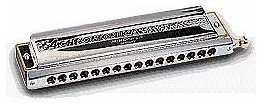Monday, December 17, 2012
Mood Disorders
Like everyone else in America, I have been horrified and saddened by the mass murder of innocents at Sandy Hook Elementary School in Connecticut. I am a parent. It is an unbelievable nightmare. And it is tied to mood disorder.
According to studies cited by the National Institute of Mental Health, about 26% of Americans aged 18 and over suffer from a diagnosable mental disorder in a given year. When you are sitting on the bus with twenty other folks, five of them are probably mentally ill. Heck, you might be one of the five!
According to the NIMH website, there are 14.8 million Americans with major depressive disorder, 5.7 million with bipolar disorder, 40 million with anxiety disorders, 7.7 million with post-traumatic stress disorder and 2.4 million with schizophrenia. Almost half of the people with mental illness suffer from more than one disorder. Some portion of mentally ill individuals, particularly those with severe mood disorders, slip into full-blown psychosis.
A reminder - psychosis is a general psychiatric term associated with a mental state often described as involving a "loss of contact with reality." This can lead to everything from mildly aberrant behavior/beliefs ("the police are out to get me") to complex and/or catatonic expressions of very severe mental disorders (hallucinations, delusions, violent/murderous acts).
The vast majority of people with mood disorders pose no threat to others; in fact, mentally ill people are far times more likely than "normal" people to be a VICTIM of violence. On occasion, however, psychotic people commit murders and other violent acts. People in the grips of a psychotic episode are often terrified - their emotional recognition system is impaired and people, even people they know quite well, can seem alien and threatening to them. People with mood disorders, especially people who are psychotic, often lack the insight to realize that they are ill so they don't seek treatment - often, they avoid it. If you are terrified, in the grip of psychosis, you have to save yourself from that experience somehow. All sorts of heinous behavior can occur, and seem perfectly justifiable to the psychotic person.
A very small subset of psychotic people fall into the category commonly labeled as "psychopaths." These are the folks that appear to be sane; they aren't raving or noticeably crazy and they can actually be quite charming. Psychopaths lack empathy and don't connect to emotions the way most of us do. Professor Robert Hare has said, "A psychopath can use words like 'I love you' but it means no more to him than if he said 'I'll have a cup of coffee.'" About 90% of serial killers are psychopaths.
Now here is the thing - in the United States, mentally ill people have the same rights as the rest of us, which is the way it should be, right? This makes it very difficult to have a severely mentally ill adult committed to in-patient treatment against his or her will. In addition, in-patient psychiatric care is in short supply. Since insurance companies don't want to pay for any unnecessary hospitalization, the hospital in-take staff are biased against admitting anyone who shows up with a mental illness. If an individual is sufficiently disrupted to be taken into the ER by the cops, they can sign that individual in for an involuntary 72 hour assessment. If the individual refuses to stay after that hold period, there is little that the hospital or anyone else can do short of a court order forcing the person into the psych ward via involuntary commitment. It is very difficult and time-consuming to obtain these court orders.
So we have this massive epidemic of mental illness, and the severely ill folks can avoid treatment if they wish. The state of knowledge of psychiatric illnesses is quite inadequate; psychiatrists and therapists are usually making educated guesses about their patients (if that). The old saying is "Psychiatry is to medicine as astrology is to astronomy." I have spent a lot of time over the past few years interacting with mental health professionals as I tried to help loved ones with mental illness and I totally agree with that saying.
Now let's overlay the mental illness epidemic on top of the American gun culture. Regardless of where one might stand regarding Second Amendment rights, it is easy to see that we have a problem. The surprise isn't that psychotic people will commit murder on occasion. The surprise is that we don't have a lot more murders committed by psychotics. It is as easy as pie for an undiagnosed psychotic individual to get a gun. This demonstrates again that the overwhelming majority of folks with mental illnesses are not violent.
And while we do have a problem, it is also important to put the risk in perspective. There were 14,748 murders in the U.S. in 2010 and a fraction of those killings were committed by mentally ill people; there were 32,788 people killed in automobile accidents. All parents need to remember that, statistically speaking, our children are much, much safer in school than they are in the backseat of a car. We fear automobile accidents, but we dread random murders committed by crazy people. Dread is not subject to the rules of logic - we obsess over things that are very unlikely to happen, whether it is random murder or a jet crash. Dread is a lot worse than fear.
Having said all of this, I can't for the life of me figure out why any regular citizen of the United States needs to own an assault weapon; it seems to me that the threat to public safety outweighs the "right to bear arms." When the Founders wrote the Second Amendment, I don't think they anticipated that they would be protecting the right to own a weapon that can spray 400 rounds per minute.
Subscribe to:
Post Comments (Atom)




No comments:
Post a Comment